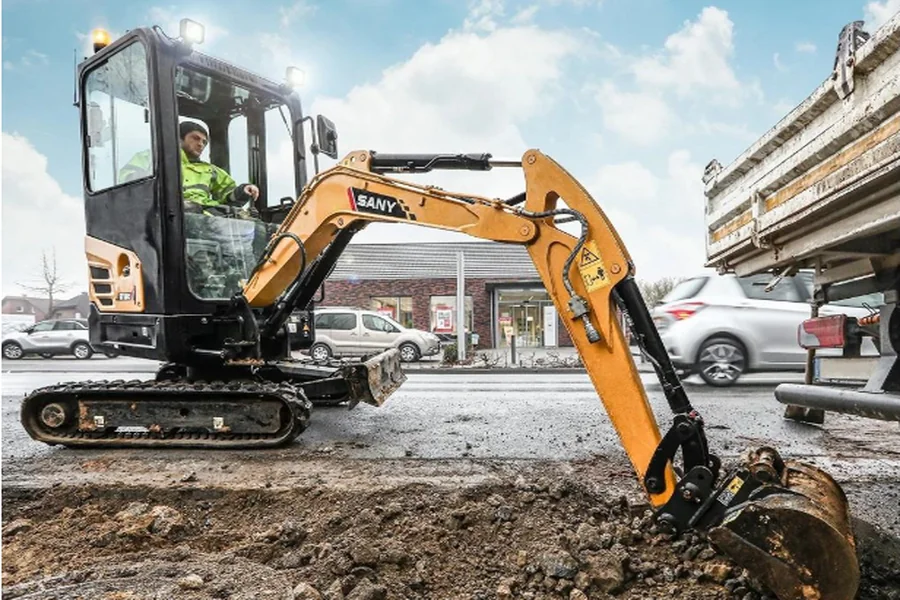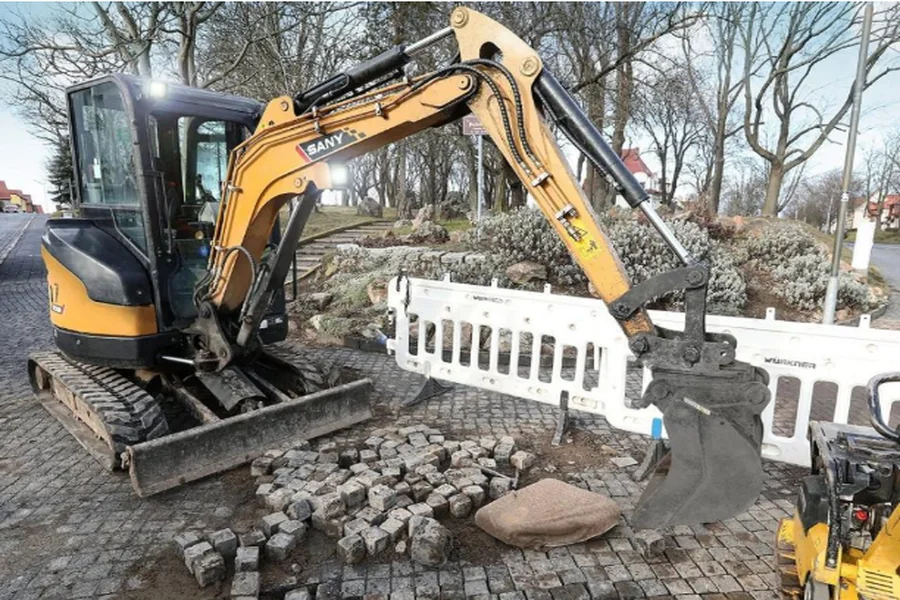Compact excavators have become essential tools in urban construction. Their unique design allows them to operate efficiently in crowded city environments. Construction professionals frequently face challenges such as restricted space and the need for quick project turnarounds. Compact excavators rise to these challenges by offering a multitude of advantages. They’re not only designed to fit into tight spaces but also feature adaptability and efficiency that traditional heavy machinery cannot match. This blog explores the various benefits of compact excavators, highlighting why they are increasingly becoming the equipment of choice for urban builds. Let’s delve into what makes these machines so valuable for city-focused projects.
Compact Excavators: What Makes Them Ideal for Urban Builds?
Compact excavators are tailor-made for urban construction due to their size, flexibility, and functionality. Understanding the unique aspects of compact excavators helps us appreciate their widespread adoption in urban settings.
Maneuverability in Tight Spaces
Operating in urban environments often requires maneuvering through narrow spaces. Compact excavators excel in such scenarios. Their design includes a minimal tail swing, which reduces the risk of bumping into nearby structures. This allows operators to work close to buildings without fear of damage. The smaller size doesn’t compromise their capability; it enhances precision and reduces the margin for error. Their hydraulic systems offer smooth, responsive controls, enabling operators to handle delicate tasks with precision. This maneuverability reduces project completion times, a critical factor in urban projects. Additionally, the compact size facilitates easier transport between job sites, further boosting productivity.
Lightweight and Portable
The lightweight nature of compact excavators is a significant advantage in urban builds. These machines exert less pressure on the ground, which is crucial for surfaces like pavements and landscaped areas. Transporting them to different sites is straightforward, using standard trailers rather than specialized heavy-duty hauling. This portability means less setup time and immediate commencement of work. Moreover, their ease of transport translates to reduced fuel consumption, lowering operational costs. The combination of lightweight design and advanced technology ensures that compact excavators can be deployed quickly and efficiently, without the logistical challenges associated with larger equipment.
Reduced Environmental Impact
Urban areas now prioritize eco-friendly solutions, and compact excavators align with these values. Modern models feature engines that comply with stringent emissions standards, reducing the carbon footprint of construction projects. Noise pollution is another concern in populated areas; these machines operate quietly, minimizing disturbances to residents and businesses. Furthermore, their efficient fuel consumption equates to fewer emissions, aligning with urban sustainability goals. The ability to integrate electrification and hybrid technologies further enhances their environmental appeal. Construction companies that choose compact excavators demonstrate a commitment to reducing their ecological impact while maintaining high performance standards.
Key Benefits of Compact Excavators for Urban Projects
Compact excavators provide an array of benefits that enhance urban construction projects. Their adaptability with various attachments allows them to perform multiple tasks. They also offer significant cost savings compared to larger machinery. By understanding these key benefits, construction teams can make informed decisions that optimize project outcomes.
Versatility with Attachments
One standout feature of compact excavators is their versatility. The ability to swap attachments easily, such as buckets, augers, and hammers, transforms these machines into multi-functional tools. This versatility means a single machine can perform tasks typically requiring multiple pieces of equipment. On an urban construction site, this reduces clutter and minimizes the need for numerous machines, freeing up valuable space. Additionally, the efficiency of switching attachments on compact excavators promotes faster project completion. Operators can tackle different challenges swiftly, ensuring that tight deadlines are met without compromising quality. This flexibility makes compact excavators a strategic asset for any urban construction project.
Cost-Effectiveness
Cost efficiency is a primary concern in urban construction, and compact excavators deliver on this front. Their lower purchase price and reduced maintenance costs make them an economical choice. Fuel efficiency also contributes to cost savings over the life of the machine. Since they require less space, project managers can maximize site layout, which can lessen rental fees for space-constrained projects. Furthermore, their ability to handle multiple roles on-site means fewer machines are needed, cutting overall project expenses. The cost savings don’t just stop at acquisition and operation; their reliability and ease of use translate to fewer repairs and downtime, boosting overall project efficiency.

Real-World Applications of Compact Excavators in Urban Builds
Compact excavators have proven indispensable in many urban construction scenarios. From utility installations to roadwork and site preparation, these machines offer unmatched efficiency and precision. Their adaptability continues to transform urban landscapes by streamlining construction activities.
Utility Installations and Maintenance
In urban settings, utility installations are common and require precise excavation. Compact excavators excel here due to their ability to navigate confined spaces and handle delicate tasks without disrupting existing infrastructure. Operators can efficiently install water, gas, and sewage lines, ensuring minimal disturbance to surrounding areas. Their precision capabilities allow for targeted excavation, which maintains the integrity of existing utilities. Their use in maintenance tasks is also noteworthy—they can quickly access underground utilities for repairs or upgrades. This strategic application results in less disruption for city dwellers and improved service delivery.
Roadwork and Site Preparation
Urban roadwork requires equipment that can perform with agility and precision. Compact excavators are ideal for tasks like digging trenches, clearing debris, and grading surfaces. Their small footprint allows them to work alongside active traffic, minimizing disruption during road repairs or upgrades. Site preparation for new building projects, especially those with tight access, benefits significantly from their use. They can level ground, dig foundations, and perform landscaping tasks swiftly. Their ability to switch attachments means they can adapt to changing site needs without delay. This adaptability makes them invaluable on dynamic urban construction sites.
Conclusion
The compact excavator offers myriad advantages for urban builds, from their maneuverability to their eco-friendly designs. They stand out as efficient, versatile, and cost-effective solutions for urban construction challenges. By incorporating compact excavators, project teams can meet the growing demands of urban development efficiently and sustainably. These machines not only increase productivity but also align with modern environmental standards, ensuring they remain a crucial element in urban construction’s future. Embracing these machines can drive success and innovation in urban building projects, setting a new standard for construction efficiency and effectiveness.





